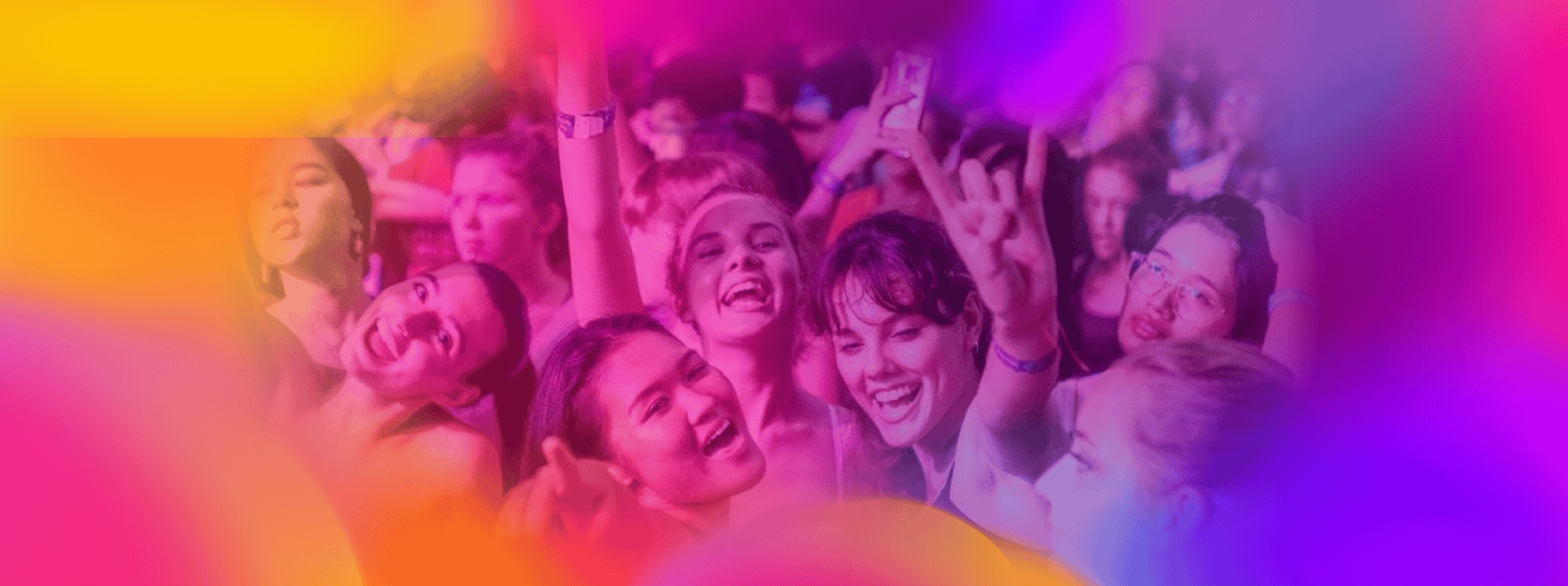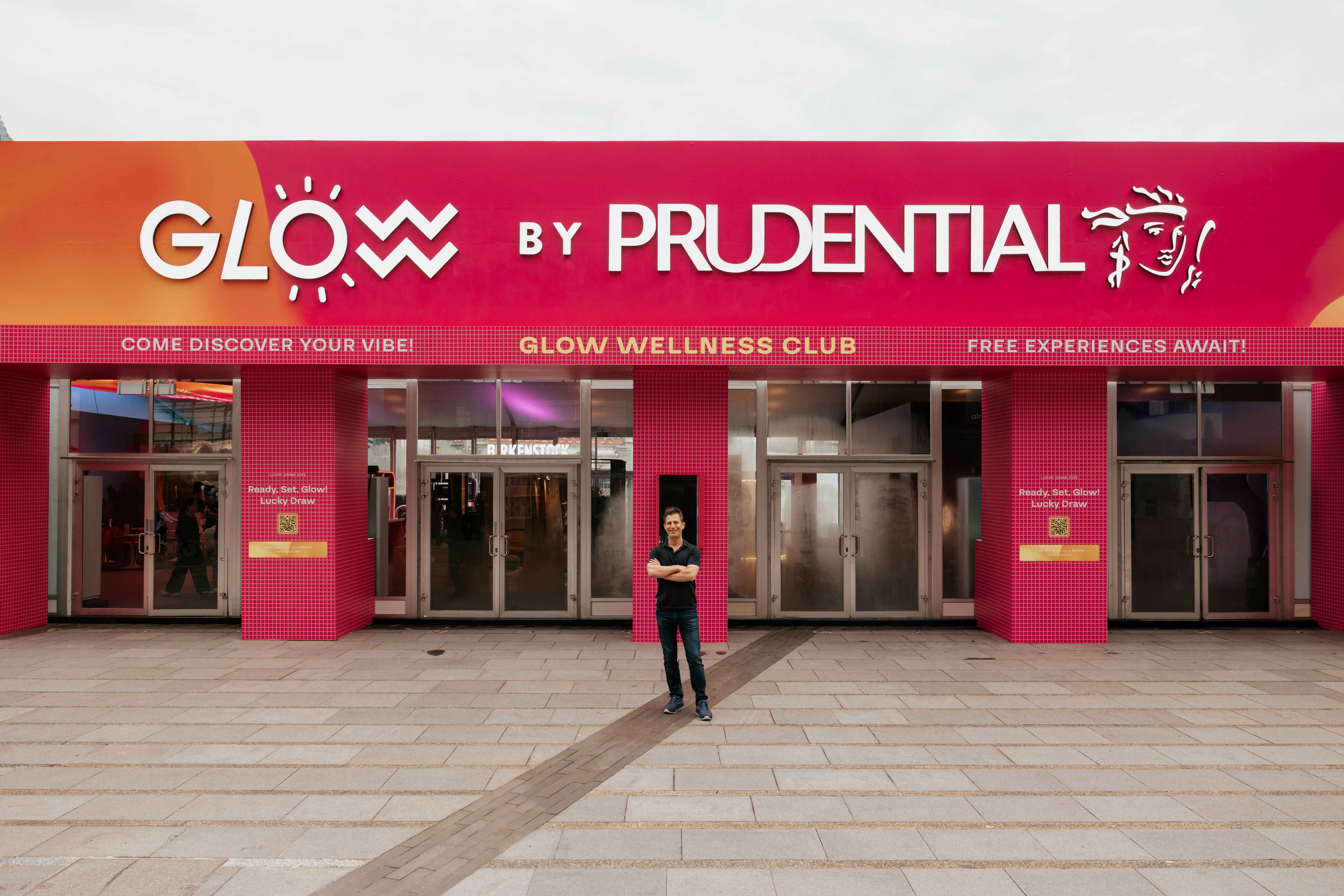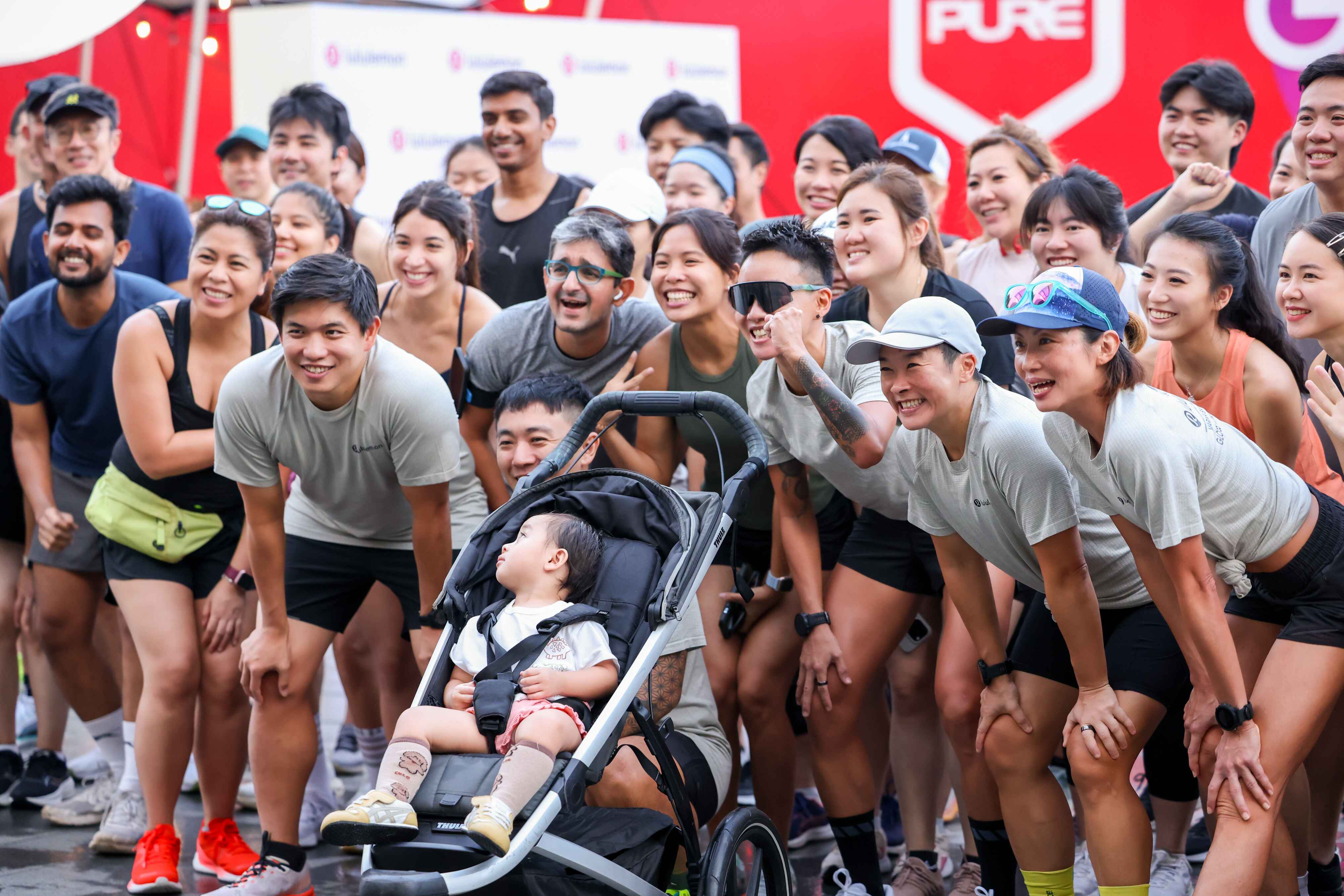What began as a spark of inspiration drawn from the wellness movement overseas has evolved into one of Asia’s most inclusive and emotionally resonant wellness festivals. For Martin Capstick, founder of Glow Festival, the idea was never just about fitness or fleeting trends. With roots in sports and classical music, his perspective on wellbeing has always been layered – one that balances the physical with the emotional, the individual with the communal.
Since its inaugural Sentosa edition in 2019, Glow has steadily grown beyond its initial identity, becoming a vibrant space that champions presence, self-awareness, and connection. In a region where overachievement is often celebrated and rest still feels like a luxury, Capstick sees Glow as both a sanctuary and a spark, gently reshaping how wellness is defined and experienced in Asia.
(Related: Work Hard, Stress Less - A naturopath and nutritionist's guide)
What was the initial spark that led you to create Glow Festival? How has it evolved since then?
I grew up in a very sporty family and am also a classically trained musician which is an odd combination, but gave me a unique view of health and wellness as a balance of physical and emotional wellbeing. And so, as my career in sports marketing evolved to include music, arts, and other lifestyle events, creating Glow was really a natural next step.
The Wanderlust events in the United States provided the initial inspiration, however I always felt there was more to say, and became convinced that we could do that through a more inclusive and holistic experience that spoke to a broader audience with a universal message.
After an amazing launch on Sentosa in 2019, the pandemic almost made it a very brief spell in the sun for us, but the story of Glow has been one of tremendous faith from stakeholders and partners, all of whom continue to believe in the vision and what Glow represents.
Glow started with a focus on fitness, but it’s since grown into something that more rooted in emotional wellbeing and presence. What prompted that shift in direction, and how did you know it was the right direction to take?
Trying to reach everyone right out of the blocks is a recipe for failure. And so, we started out by identifying a market segment we knew we could get traction with by delivering a quality experience, and this helped us establish a platform from which we could build.
We’re on a journey with Glow and expanding elements of emotional and mental wellbeing is a really important and super exciting part of our direction of travel. Gradually broadening the experience to give emotional wellbeing and presence a bigger share of voice has always been part of the plan to truly encompass the holistic wellbeing message.
As for the need to focus on mental and emotional wellbeing, the evidence is overwhelming. We live in an incredibly fast paced world where change is constant, and the future is more uncertain than ever. No-one knows what’s real or not, our senses are constantly overloaded with data that is designed to make us feel inadequate unless we buy more stuff we don’t need, our social media accounts tell us everyone else is living a better life, and we’re in an asymmetrical battle with a trillion dollar algorithm aimed at our reptilian brains to mine our attention. But our superpower is that we have is agency over how we respond to all of this, and part of our mission at Glow is to champion those practices and amazing practitioners that can help people navigate that.
Wellness means different things to different people. How did you approach building a festival that feels inclusive, particularly for those who don’t see themselves as 'wellness people'?
The idea that health and wellness is somehow exclusive to the physically fit is utterly outdated in the modern world. It’s just not representative. Inclusivity is at the heart of the ethos of Glow, and we try to communicate this with universal messaging, employing experiential elements such as music, frequencies, scents, food, and colour. What's more, we provide a platform for bold conversations on areas of health and wellbeing that don’t necessarily get the attention they deserve, but are fundamental nevertheless, all curated within a beautiful communal environment that fosters connection.
With the support of STB and Prudential, Glow Festival has scaled into something bigger. What have those collaborations allowed you to do that wouldn’t have been possible otherwise?
An event like Glow Festival simply wouldn’t exist without the support of the private and public sector and we’re incredibly grateful to Prudential and STB as well as our entire sponsorship family. It’s hard to overstate their importance, whether it’s helping us set up shop at Marina Bay’s Event Plaza which is one of the region’s most iconic venues, or designing the beautiful structure that houses such a wide range of experiences, or flying in the amazing international talent and reaching such a huge audience not only in Singapore but abroad, we just wouldn’t be here without them.
(Related: Stay fit wherever you are)
In a country and region where burnout is still often worn as a badge of honour, how do you see Glow gently shifting the conversation toward rest, longevity, and community care?
Our launch event in 2019 carried the tag line “the ultimate festival to unwind” which is a very benign phrase, but speaks directly to this issue. Almost every Singaporean I’ve talked to about this admits to feeling intense pressure to overachieve, and this seems to be a constant pretty much through all stages of life.
The earlier question about emotional wellbeing and presence is so relevant here.
The practice of being present is crucial because it promotes self-awareness in both our personal and professional lives. We’re better able to understand our environment, build stronger, more empathetic relationships, identify strengths and weaknesses, set realistic goals, and pursue aspirations with clarity and purpose. Ultimately, it enriches our lives by allowing us to experience them more fully. It encourages a deeper appreciation for the small moments and helps develop a sense of gratitude and contentment. This holistic approach to life is a cornerstone of happiness and success, and so curating experiences that help promote not only the principle of this message, but the practice is a core part of what Glow is all about.
What do you hope the legacy of Glow will be – both for the people who experience it now and for how wellness is understood in Asia going forward?
On one level, if Glow is known simply as the space people come together to unwind, rest and reset, that would be great because in an uncertain, rapidly changing, and often disconnected world, that’s a universal need.
On a deeper level, I hope that Glow can contribute to a reshaping of the narrative around health and wellness across Asia from something exclusive or intimidating, to something accessible, joyful, and fundamentally human. If festivalgoers leave feeling not only inspired but empowered, with practical tools and a renewed sense of agency over their wellbeing, then we’ve made an impact. Wellness is not a destination but a lifelong journey, unique for every individual, and I’d love Glow to be the catalyst that helped people embark on that path, no matter their starting point.
For more information, click here














 Back
Back
